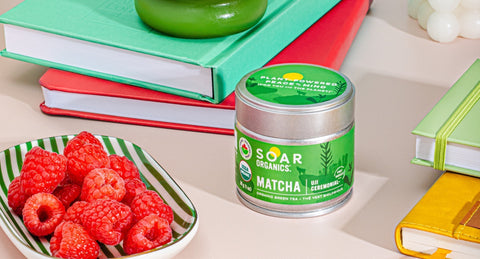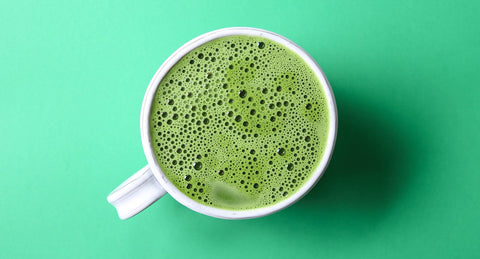At its heart, matcha is more than just a tea, it’s a tradition, a ritual, and a connection to centuries of Japanese craftsmanship. As matcha becomes increasingly popular, many are asking: What’s the difference between organic and conventional matcha?
Here’s a breakdown of what sets organic matcha apart, and why it matters more than you might think.
Grown Without Synthetic Chemicals
Organic matcha is cultivated without the use of synthetic pesticides, herbicides, or fertilizers. That means no chemical residues in your cup and no exposure to toxins that could accumulate in the body over time.
Conventional tea farming, especially in non-organic operations, may rely on agrochemicals to boost yield and control pests. While these substances may be permitted in conventional agriculture, they’re not something most people want in a daily wellness ritual.
Better for the Soil, Better for the Planet
Organic farming nurtures the health of the soil, water, and surrounding ecosystems. By avoiding harmful inputs and focusing on sustainable methods like crop rotation and composting, organic tea farms support long-term biodiversity and soil regeneration.
For matcha, a product of deeply rooted traditions and agricultural finesse, respecting the land is essential. Organic cultivation helps ensure that the same fields can continue producing high quality tea for generations to come.
Third-Party Testing & Certification
Certified organic matcha must meet strict national and international standards, often requiring annual audits and comprehensive documentation. This level of transparency helps ensure your tea is free from contaminants such as synthetic pesticide residues, heavy metals, and GMOs.
Many organic matcha producers also go the extra mile by testing for things like radiation and microbial safety.
Purity You Can Taste
Because organic matcha comes from healthy, chemical-free soil, it often yields a cleaner, fresher flavor. When properly shade-grown and stone-milled, the resulting matcha has a vibrant green color, a smooth umami profile, and none of the bitterness sometimes found in lower-grade conventional matcha.
The difference is especially noticeable in ceremonial-grade matcha, where purity and delicacy are key.
Supports Ethical & Sustainable Practices
Organic matcha is often produced by smaller, family-run farms committed to traditional methods and sustainable values. Choosing organic supports these growers, many of whom are preserving centuries-old farming wisdom, and helps sustain a tea culture rooted in care, respect, and responsibility.
Final Thoughts
We’re proud to source only certified organic matcha that reflects our values of quality, transparency, and sustainability. Because when it comes to what you put in your body, purity should never be optional.



